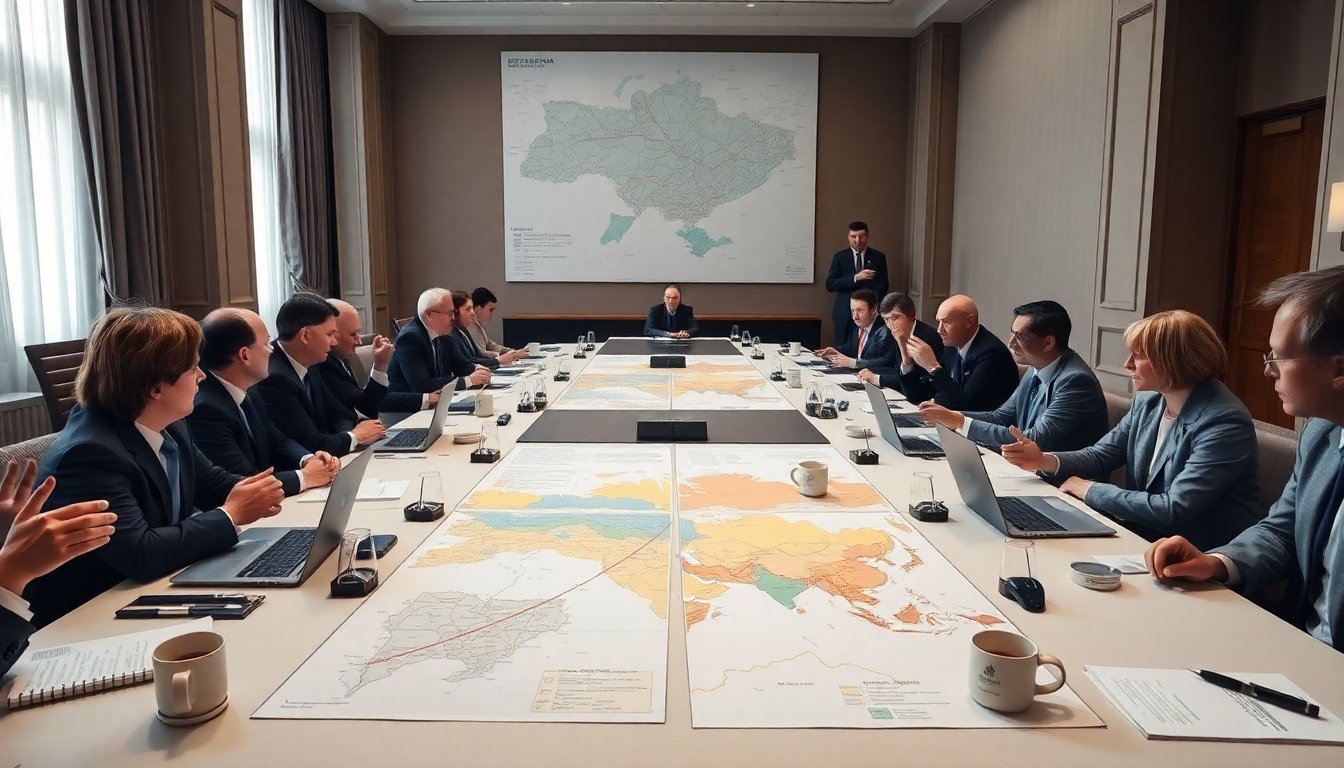Table of Contents
On November 19, reports surfaced indicating that the United States and Russia are formulating a new strategy to address the ongoing conflict in Ukraine. Details of this proposal reveal that it largely mirrors the demands articulated by Vladimir Putin since the conflict began. Central to this peace plan are two key figures: Steve Witkoff from the US and Kirill Dmitriev from Russia. This article examines their backgrounds and roles in the negotiations surrounding one of Europe’s most devastating wars in recent history.
The architects of the peace plan
Kirill Dmitriev, a prominent Russian diplomat and businessman, was born in Kyiv. He often highlights his roots in the former Soviet Union rather than present-day Ukraine. At 17, he moved to the United States, pursuing an elite education at Stanford and Harvard. Dmitriev began his career at McKinsey & Company, a global consulting firm, before taking on significant roles in both Russia and Ukraine.
In the early 2000s, he led an investment fund associated with Viktor Pinchuk, a Ukrainian oligarch and son-in-law of former President Leonid Kuchma. His career took a notable turn in 2011 when he became the head of the Russian Direct Investment Fund (RDIF), which supports promising Russian enterprises through partnerships with international investors. During the COVID-19 pandemic, RDIF gained visibility as the financial backer of Sputnik V, one of the first vaccines developed against the virus, elevating Dmitriev’s global profile as he actively promoted the vaccine.
Ambitions and connections
Dmitriev is recognized for his ambitious nature and ability to cultivate influential relationships, reportedly including connections with Putin’s family. After Trump’s re-election, he positioned himself as a representative for economic collaboration with the US, emphasizing the potential benefits of rekindling Russian-American relations. He famously proposed a tunnel under the Bering Strait as a symbol of cooperation.
Steve Witkoff’s role in negotiations
Meanwhile, Steve Witkoff, a New York real estate developer and close ally of Donald Trump, has made significant strides in the diplomatic arena. At 68, Witkoff transitioned from a legal career to founding the Witkoff Group, which has developed numerous projects across the United States. His friendship with Trump dates back to the 1980s, deepening during a chance encounter in Manhattan that led to Witkoff purchasing a sandwich for Trump.
During Trump’s administration, Witkoff initially played a minor role, but his loyalty during Trump’s post-election struggles solidified his position. After Trump’s return to the White House, Witkoff was tasked with overseeing negotiations with Russia, leveraging his previous experience in a ceasefire agreement between Israel and Hamas, facilitated by the outgoing Biden administration.
Challenges and controversies
Despite Witkoff’s commitment, his methods have faced criticism. Ukrainian officials have accused him of favoritism towards Russia. Reports suggest that his team lacks sufficient expertise in Russian affairs, raising concerns about the effectiveness of his diplomatic engagements. Following a meeting between Trump and Putin that yielded no significant breakthroughs, both American and Russian officials expressed frustration with Witkoff’s handling of the discussions.
Implications of the peace proposal
The recently drafted peace proposal outlines terms heavily skewed in favor of Russia, demanding significant concessions from Ukraine, including territorial adjustments and reductions in military capabilities. These conditions have alarmed European diplomats and Ukrainian officials, who argue that any negotiation must include their input to be credible and effective.
While the proposal aims to resolve the ongoing conflict, it appears to contradict Ukraine’s sovereignty, as President Volodymyr Zelenskyy has firmly rejected any notion of ceding territory. The urgency of the situation is underscored by continued Russian assaults, complicating the already tense atmosphere as Ukraine strives to uphold its defense and sovereignty amidst international negotiations.
The geopolitical landscape remains fraught with challenges, and the success of any peace initiative depends on unifying the interests of the involved parties. As dialogue progresses, the necessity for comprehensive consultations with European allies and Ukrainian leadership becomes increasingly evident.


